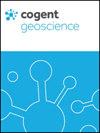Present status of soil moisture estimation by microwave remote sensing
引用次数: 66
Abstract
Abstract The spatiotemporal distribution of soil moisture is a key variable for hydrological and meteorological applications that influences the exchange of water and energy fluxes at the land surface/atmosphere interface. Accurate estimate of the spatiotemporal variations of soil moisture is critical for numerous large-scale environmental studies. Recent technological advances in satellite remote sensing have shown that soil moisture can be measured by a variety of remote sensing techniques, each with its own strengths and weaknesses which minimizes the ill-posed conventional problems. Technical and methodological advances such as multi-configuration radar and forthcoming SAR constellations are increasingly mitigating the shortcomings of SAR with respect to soil moisture estimation at the field and catchment scale. This paper presents a comprehensive review of few selected inversion methods of soil moisture, with focus on technique in passive microwave and active microwave measurements, in addition to the factors which affect the microwave return. The theoretical and physical principles and the status of current basic retrieval methods are summarized. Limitations existing in current soil moisture estimation algorithms and the major influencing factors including radar configurations (polarization, incidence angel and frequency of bands) and soil surface characteristics on backscattering coefficient have been addressed and also discussed.微波遥感土壤水分估算研究现状
土壤湿度的时空分布是水文和气象应用的一个关键变量,它影响着地表/大气界面的水和能量交换。准确估计土壤湿度的时空变化对大量大规模环境研究至关重要。卫星遥感的最新技术进展表明,土壤湿度可以通过各种遥感技术来测量,每种技术都有自己的长处和短处,从而最大限度地减少了不恰当的传统问题。技术和方法的进步,如多配置雷达和即将推出的SAR星座,正在日益减轻SAR在田间和流域尺度上土壤水分估算方面的缺点。本文综述了几种土壤湿度反演方法,重点介绍了被动微波和主动微波测量技术,以及影响微波回波的因素。综述了现有基本检索方法的理论、物理原理和现状。讨论了当前土壤水分估算算法存在的局限性,以及雷达配置(偏振、入射角和频带频率)和土壤表面特征等对后向散射系数的主要影响因素。
本文章由计算机程序翻译,如有差异,请以英文原文为准。
求助全文
约1分钟内获得全文
求助全文

 求助内容:
求助内容: 应助结果提醒方式:
应助结果提醒方式:


